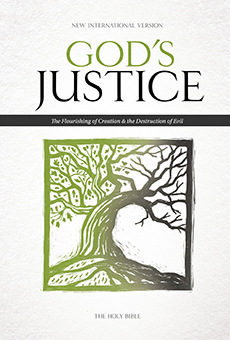
Godly Leadership Principles from the Apostle Paul
Good leaders understand not only how important it is to communicate and model core values but also how crucial it is to empower others to do the same. We see the apostle Paul seeking to do this in his first letter to Timothy in the Bible.
Timothy is a somewhat timid and sickly young man. Nevertheless Paul recognizes his suitability for leadership and entrusts him with considerable responsibility. In his absence, Timothy is charged to lead the community of Christians in Ephesus.
Paul never forgets, here or in any of his writings, that the church is meant to bring God’s hope and restoration to the world. Justice is not an abstract concept. The values of the gospel need to be lived out in order to demonstrate the loving justice that is the hallmark of the kingdom of God that Jesus announced.
Paul sets out for Timothy the important characteristics of godly leadership focusing his attention on the tasks of leadership he believes Timothy must prioritize. Paul’s urgent appeal is for those who belong to God to earnestly pursue a lifestyle consistent with the message of the gospel—a lifestyle that prioritizes loving justice, or “doing the right thing.”
Maintaining integrity in a corrupted world requires faith, love, patience and gentleness. It is clear from Paul’s writing that Christianity is not a privately held religious belief system but rather, it is a lifestyle lived out in radical contrast to those who worship and live by the values of the powerful Roman Empire. Ever practical, Paul understands that this shift requires focus and practice, which is why he reminds Timothy to build “a firm foundation for the coming age” (1 Timothy 6:19).
Paul’s Guidelines on Godly Leadership to Timothy
1. He addresses the issue of maintaining clear teaching of doctrine, guarding against false teaching. This is so as to avoid unhelpful legalism, distractions from the core issues of faith, and unjust and unloving practices that some false teachers are modeling.
2. He focuses on how to conduct public worship in ways that are respectful, ethical and just, and that best enable the gospel to flourish in that context. Paul seeks to balance the delicate cultural and contextual issues facing the church with his extraordinary vision of the new community. He is aware of the limitations of people’s mindsets and circumstances, which have been shaped by particular perspectives and experiences. Yet at the same time, he is bursting with the revelation of the profound love and freedom of the gospel. He makes clear that the way we live and worship should not be a stumbling block to the declaration of the good news of the gospel.
3. He addresses practical issues around selecting sound leadership and gives realistic advice on retaining it: fair pay and good accountability structures. Characteristics such as gentleness, moderation and nonviolence are distinctive markers of Christian leaders in comparison to the prevailing culture where men in leadership may be expected to demonstrate aggressive, egotistical traits. Paul specifically challenges men to drop the arrogant and egotistical characteristics that are particularly common in competitive cultures. He goes on to highlight the dangers of pride in leaders. He warns against charismatic and persuasive cult-like figures who gain influence within a religious community but are largely mistrusted by the wider public.
4. He emphasizes the goal of inclusion and participation of each member of the community—an aim that goes beyond simply meeting material needs. Paul gives guidelines on the social responsibilities of the local church, especially with respect to those viewed by the culture as holding inferior status, and to those who are particularly vulnerable.
5. He warns against making financial gain a priority over the faithful teaching of the gospel. Paul’s warning about the love of money is an important challenge to us in the twenty-first century when the pursuit of wealth has not only divided families and communities, but also created wars and unsustainable consequences for our ecosystems, threatening more and more instability and suffering. The church has a high calling to imagine a way of living where we are content with what we have and not motivated to outdo each other in our quest to acquire material things. This is the sort of justice Paul envisions when he cries out, “I am again in the pains of childbirth until Christ is formed in you” (Galatians 4:19), for this sort of Christ-centered integrity is the hope for the world.
Paul’s letter to Timothy offers practical guidelines to help Timothy restore order and keep things on track until Paul himself is able to visit. It is so easy to lose sight of just how radically different (in a good way!) the family of God is meant to be. Paul reminds us that we have a wonderful future to look forward to. Even more than that, we can enter into that future today and begin living in the light of it.
Edited from an article by Andy and Carol Kingston-Smith (UK) in the The Holy Bible God’s Justice ebook. Andy and Carol are cofounders of the jusTice initiative which aims to facilitate and focus Christian engagement with justice-related issues. They are part-time lecturers at Redcliffe College (UK), where they head a post-graduate program, Justice, Advocacy & Reconciliation in Intercultural Contexts.

The Holy Bible God’s Justice ebook
God’s justice, his “setting things right,” is a foundational principle of the Bible. The The Holy Bible God’s Justice ebook traces God’s plan for justice with articles that draw out issues of justice from Genesis to Revelation.
Learn More






Absolutely true in every sense of the word. Justice understood in the context of a powerful God as he is and who he is and none other.